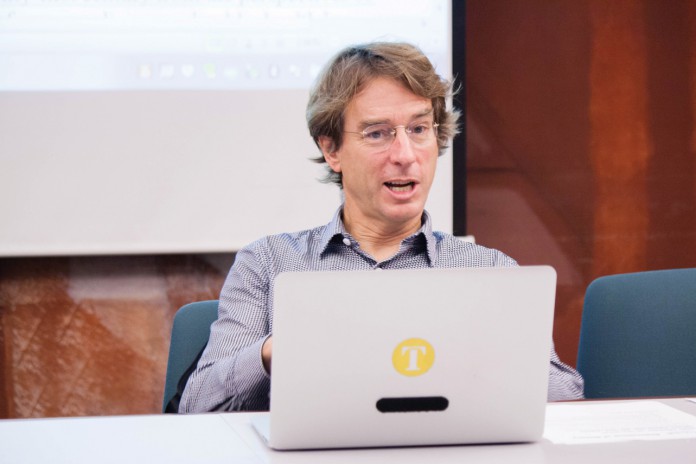
Quincy Lee
Key members from several University of California, Santa Barbara departments met on Friday to discuss interdisciplinary graduate education guidelines for those researching the topic of identity. Researching identity has a wide range of possible approaches and requires collaboration from many disciplines of education.
Cynthia Kaplan, a professor in the Department of Political Science, led this research focus group in a discussion about possible additions to the available coursework for graduate students studying identity. Kaplan strives to incorporate many fields of knowledge into this proposed program. Comparative education allows graduate students to bring in a variety of perspectives and make a greater intellectual contribution to each department. Allowing students to partake in this proposed interdisciplinary program would create further advancement in the knowledge of many aspects of identity.
Professor Adrienne Edgar from the history department was helpful in creating this interdisciplinary research cluster. Edgar spoke of the need for departmental members to communicate about possible research opportunities at these roundtable meetings. “This is a way to inform each other,” Edgar said.
Without communication across departments, students would be unaware of possible coursework that could be instrumental to their research topics. The availability of the course Linguistics 232: Foundations of Sociocultural Linguistics would be helpful for a student in the political science department researching the development of identity. As identity is a difficult concept to define, there is a need for surveys and focus groups such as this roundtable meeting. Kaplan brought together such a wide range of knowledge in order to provide a comparative education to students of all departments.
“How does music help create the idea of who we are?” is the main question driving Tim Cooley’s research in the music department. His research into ethnomusicology could touch on a large part of someone’s portrayal of identity. Researchers, such as Andrew Johnson of the Department of Political Science, are writing dissertations on policing with regards to structural racism. They could benefit from the perspectives of other faculty, as well as contribute to another researcher’s focus on identity within governmental employees.
The meeting brought together researchers such as Johnson, department officials such as Edgar and graduate students. The concept of identity can be relevant to each person’s work, and this meeting provided faculty members with the chance to propose possible collaboration. There are many subcultures that have a unique identity. Allison Keleher, the undergraduate program coordinator, does work with party politics, particularly LGBT groups, each of which has a valued identity. The addition of these subfields would allow researchers to gain additional information about their topics.
Each department showed what it had pertaining to the concept of identity, and gathered multiple fields of thought to aid future students attempting to answer questions of identity. This roundtable created a collaborative effort to design a program, in which graduate students involved in different fields of study can cooperate to better improve everyone’s research. Using both quantitative and qualitative methods, a survey of identity could better serve students in all levels of study. Overall, the incorporating elements from multiple departments would create a wider range of understanding of the subject of identity, as to improve the education of current and future students.










